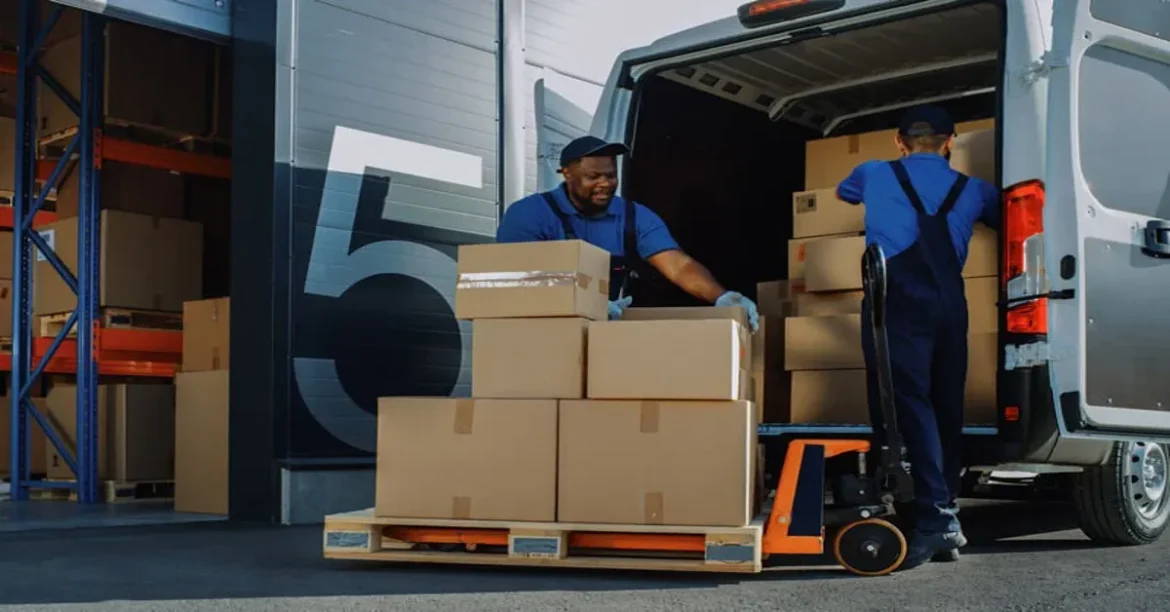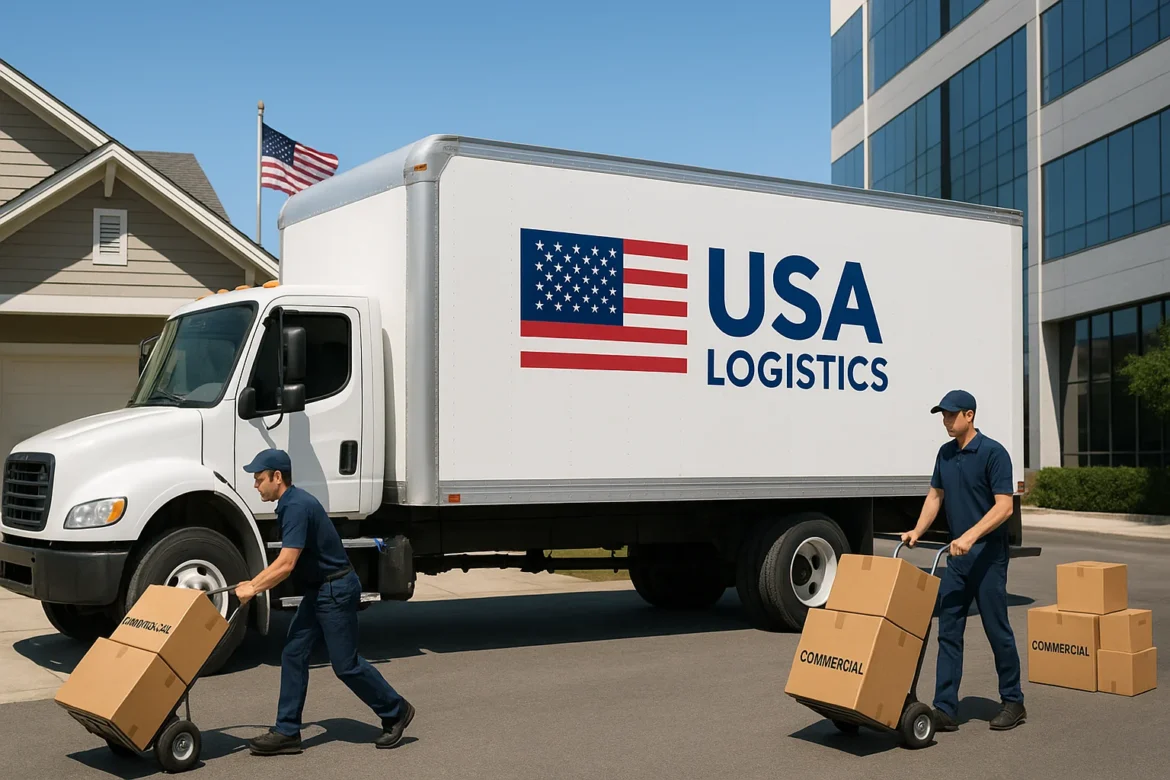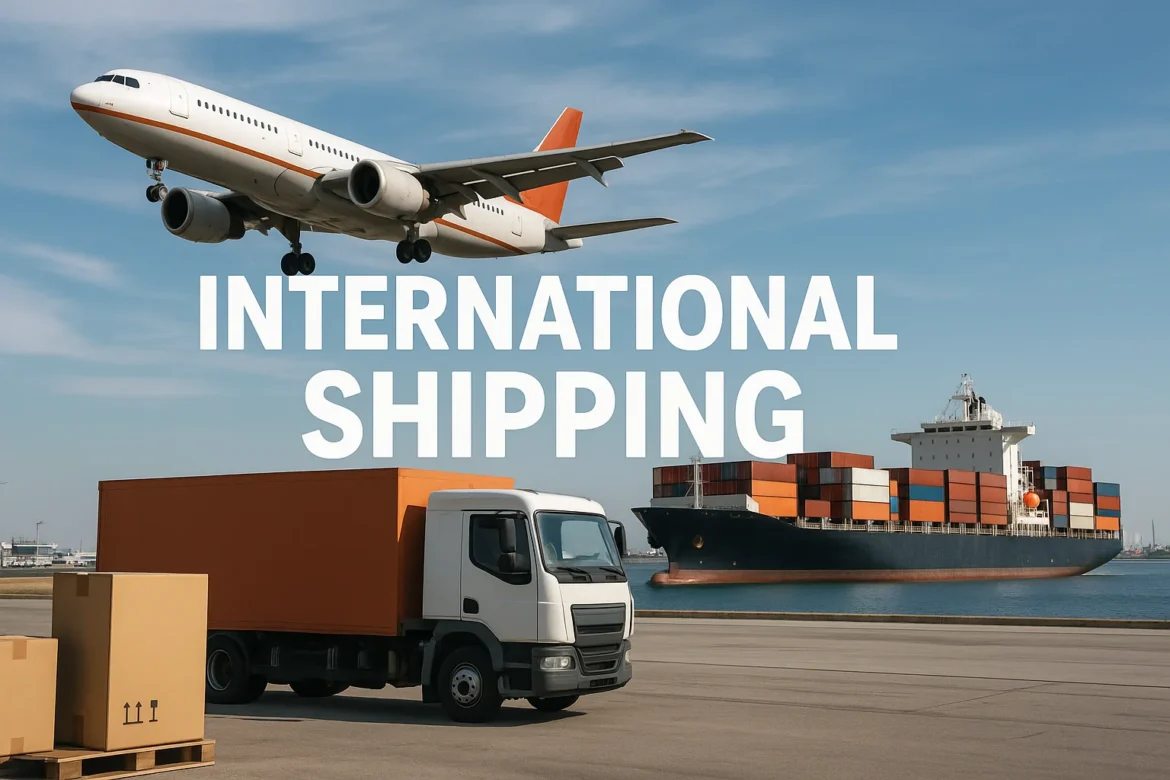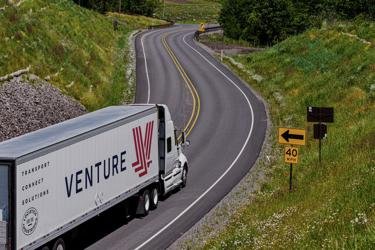In today’s fast-moving economy, businesses rely heavily on reliable shipping solutions. Whether you’re a small business shipping pallets across state lines or an enterprise looking to optimize last-mile delivery, LTL Freight is a game-changer. It balances cost, efficiency, and scalability, especially when paired with local delivery solutions that close the logistics loop.
What is LTL Freight and Why It’s Booming in 2025
LTL Freight, or Less-Than-Truckload shipping, refers to the transportation of small freight that doesn’t require an entire truck. It’s perfect for shipments between 150 and 15,000 pounds. Instead of paying for an entire trailer, you share space with other businesses—cutting costs and improving efficiency.
The rise of eCommerce and regional supply chains has made LTL Freight more relevant than ever. As customer expectations shift toward faster, cheaper delivery, businesses are switching from full truckloads to LTL to stay competitive.
According to FreightWaves, the LTL market has seen consistent year-over-year growth, driven by small and medium businesses seeking flexible shipping.
The Core Benefits of Choosing LTL Freight
What makes LTL Freight so trusted? It’s not just affordability. It’s the reliability, tracking, and predictability it offers. Instead of managing costly full loads, shippers can book smaller space based on exact requirements, avoiding wasted capacity.
Real-time tracking, insurance coverage, and scheduled pickups are now standard offerings by leading LTL Freight carriers. You don’t just save money—you gain control.
LTL Freight vs. FTL: What’s Best for Your Business
Some businesses debate between LTL (Less-Than-Truckload) and FTL (Full Truckload). If you’re shipping fewer items or your cargo isn’t time-sensitive, LTL Freight is the obvious winner. FTL makes sense for bulk or high-priority goods, but for anything else, LTL is the go-to.
Small businesses especially benefit from LTL. The flexibility allows them to test markets, fulfill small B2B orders, or manage seasonal inventory without overspending.
Top Trusted LTL-Freight Carriers in the U.S.
There are several LTL-Freight carriers that have built a reputation for excellence. Names like Old Dominion Freight Line, XPO Logistics, Saia, and Estes Express are dominating the space. These companies offer advanced tracking, solid insurance policies, and wide national coverage.
Old Dominion, for instance, has won multiple service awards and offers one of the highest on-time delivery rates. Old Dominion Freight Line also offers an easy-to-use digital platform to manage shipments.
Meanwhile, XPO Logistics is known for integrating technology with logistics. Their LTL Freight network offers AI-powered optimization for faster delivery times and fuel efficiency.
Why Local Delivery Solutions Matter in an LTL Strategy
Shipping doesn’t end when the freight reaches the city. This is where local delivery becomes crucial. A reliable LTL Freight service is only as good as the last mile. Customers expect doorstep delivery, and missed or delayed handoffs can hurt your reputation.
Pairing your LTL Freight partner with a local courier service ensures packages move seamlessly from the hub to the customer. It reduces delivery windows, enhances customer satisfaction, and keeps operations running smoothly.
How to Choose the Right LTL Freight Carrier
It’s tempting to go with the cheapest option, but that rarely pays off. Choosing the right LTL-Freight carrier means looking at their delivery history, coverage area, pricing transparency, and customer support.
You should also evaluate their damage rates. A low-cost shipment won’t help if your products arrive broken or late. Platforms like FreightCenter offer comparisons, helping you find trusted carriers based on your specific needs.
The Role of Technology in LTL-Freight Shipping
Modern LTL Freight shipping is powered by logistics software, real-time GPS tracking, and smart routing. Shippers and receivers can now monitor the entire journey of their packages. This level of visibility reduces disputes and enhances accountability.
Automation also plays a huge role. AI-based route planning, load matching, and warehouse management systems reduce human error and increase speed.
Carriers that invest in tech tend to offer more consistent service—so look for ones with digital platforms or integrations with shipping software like Shippo or EasyPost.
Green Shipping: Is LTL Freight Eco-Friendly?
Absolutely. By consolidating multiple smaller shipments into a single truck, LTL-Freight reduces the number of trucks on the road. This leads to lower fuel consumption and decreased carbon emissions.
Some LTL carriers now operate electric delivery vehicles for last-mile solutions and invest in carbon offset programs. It’s a win for both your business and the planet.
If you’re looking to ship sustainably, partnering with eco-conscious carriers should be part of your checklist.
Insurance and Protection in LTL Freight
Don’t skip over insurance. While most LTL Freight carriers offer basic liability coverage, it’s often based on weight and freight class—not product value. That can be risky if you’re shipping high-value items.
Third-party insurance can offer full replacement coverage. Always ask what type of protection is included and consider upgrading if needed.
Cost-Saving Tips When Using LTL Freight Services
You can reduce LTL costs by being strategic. Pack your items efficiently—use stackable pallets, avoid overhanging goods, and label clearly. Make sure to measure dimensions correctly, as inaccurate info can lead to extra fees.
Consolidating shipments and working with 3PL partners can also help. Many third-party logistics providers have pre-negotiated LTL rates with carriers, which means better pricing for you.
LTL-Freight in E-Commerce and Retail
The boom in online shopping has pushed retailers to rethink logistics. LTL Freight is the backbone of many mid-sized retailers’ shipping strategies. Whether you’re replenishing store stock or shipping to customers, LTL keeps costs manageable without sacrificing speed.
Retailers are also using local delivery partners to complete LTL orders. This hybrid model is what keeps same-day or next-day delivery promises possible in major cities.
LTL Freight and the Importance of Real-Time Tracking
Customers demand transparency. They don’t want to wonder where their package is—they want updates. Reliable LTL-Freight carriers offer real-time tracking portals or mobile updates that provide live status alerts.
Tracking not only improves the customer experience but helps logistics managers respond to delays and bottlenecks in real time. If your LTL provider doesn’t offer this, you’re already behind.
What the Future Holds for LTL Freight
As demand grows, LTL Freight will continue to evolve. AI, blockchain for secure shipment tracking, and autonomous delivery trucks are on the horizon. These innovations will make shipping faster, safer, and cheaper.
Expect more regional hubs, better tech integrations, and hyperlocal delivery tie-ins. Companies that adapt to these changes will outpace competitors.
Integrating LTL Freight Into Your Business Workflow
You don’t need to be a logistics expert to use LTL Freight efficiently. Most modern platforms allow easy API integration, so orders, tracking, and delivery updates flow automatically into your existing systems.
This seamless flow helps with inventory management, order fulfillment, and customer notifications—making your operations smoother from warehouse to doorstep.
Conclusion
In 2025, LTL Freight is no longer just an option—it’s a necessity for businesses seeking scalable, cost-effective, and eco-friendly shipping solutions. When paired with local delivery services, it forms a powerful logistics duo capable of meeting modern customer demands.
Whether you’re a retailer, distributor, or growing startup, embracing LTL Freight means faster delivery, better control, and higher customer satisfaction.
Make the switch today—your logistics workflow will thank you.
❓ FAQs
1. What does LTL Freight stand for?
LTL Freight stands for Less-Than-Truckload shipping. It’s a method where multiple shippers share space on the same truck.
2. How much does LTL Freight typically cost?
Costs vary based on distance, weight, freight class, and delivery speed. However, it’s often more affordable than booking a full truckload.
3. Is LTL Freight suitable for fragile items?
Yes, but proper packaging is critical. Some carriers also offer extra insurance or white-glove handling.
4. Can I track my LTL Freight shipment?
Absolutely. Most carriers provide real-time tracking and delivery notifications.
5. Is LTL Freight available nationwide?
Yes. Major carriers like XPO and Old Dominion operate nationwide and also offer cross-border shipping to Canada and Mexico.
READ MORE…
🚗 How AI Can Shape the American Transportation Sector in 2025




